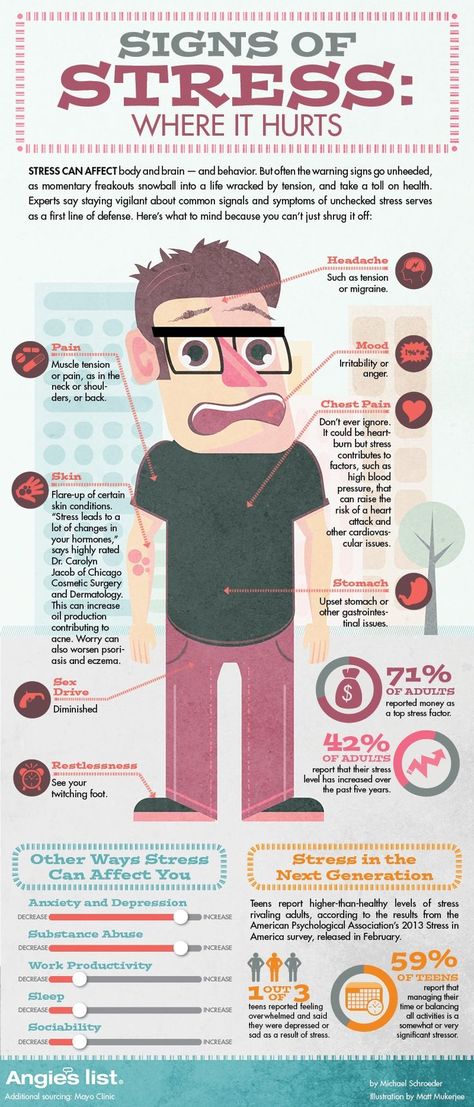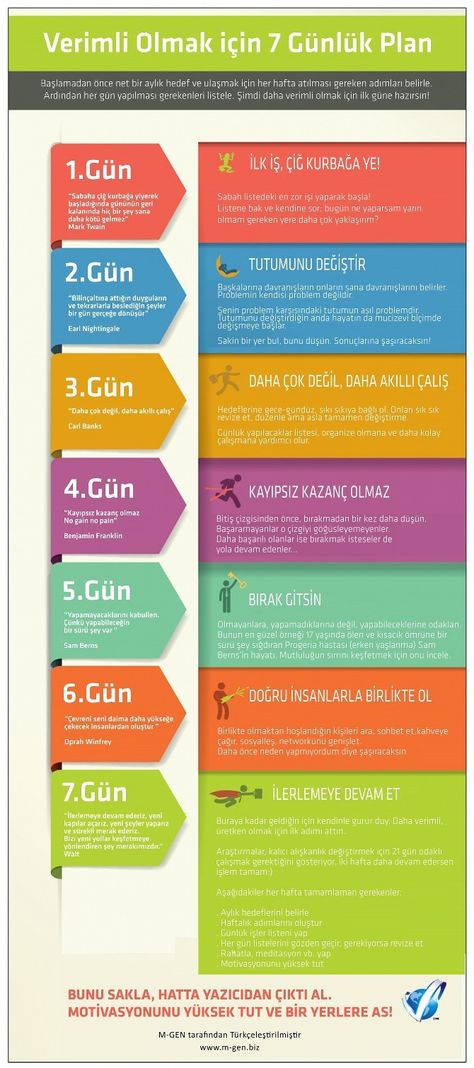Effects of narcissistic parent
10 Signs of Being Raised by Narcissists & the Long Term Effects
Skip to contentPublished: July 13, 2021 Updated: August 24, 2022
Published: 07/13/2021 Updated: 08/24/2022
Children of narcissists often had difficult childhoods where they constantly tried and failed to live up to the changing expectations of their parents. Narcissists have an excessive need for praise and validation and have little regard for the feelings and needs of others. As parents, they are often emotionally unavailable, neglectful, and abusive. Their children often struggle with self-esteem issues, anxiety, depression, and unhealthy relationships.
Need someone to help you work through the fallout from a narcissistic parent? BetterHelp has over 20,000 licensed therapists who provide convenient and affordable online therapy. BetterHelp starts at $60 per week. Complete a brief questionnaire and get matched with the right therapist for you.
Choosing Therapy partners with leading mental health companies and is compensated for referrals by BetterHelp
Visit BetterHelp
What Are the Characteristics of a Narcissistic Parent?
Narcissistic parents are often emotionally abusive to their children, holding them to impossible and constantly changing expectations. Those with narcissistic personality disorder are highly sensitive and defensive, and tend to lack self-awareness and empathy for other people, including their children.1,2 Narcissistic parents are often described as being unpredictable or “hot and cold,” making it hard for children to know what to expect.3,4,5,6 Narcissistic abuse is common, and can have lasting negative impacts on children that last into adulthood.
According to W. Keith Campbell, Ph.D., Social Psychologist, Professor at the Department of Psychology at the University of Georgia, “It can be very challenging to judge your own parents. In some situations the child can feel very special and cared for, if not fully loved. In other cases, narcissistic parents may be very abusive. Often this is a question for therapy in adulthood, but it can also be helpful talk to siblings or peers, or even friends of one’s parents to get a better idea of who they really are.”8
Narcissists can be hard to spot because they tend to put a lot of energy and effort into maintaining their reputation and appearing normal, but it’s especially difficult to recognize NPD in the people closest to us. Parents with NPD tend to be skilled at using narcissistic phrases that twist reality in ways that cause their children to doubt themselves and their perception, often portraying themselves as loving, concerned parents.
Parents with NPD tend to be skilled at using narcissistic phrases that twist reality in ways that cause their children to doubt themselves and their perception, often portraying themselves as loving, concerned parents.
While not everyone will have the same experience, here are ten signs that you were raised by a narcissist:
1. Their Love for You Was Conditional
One of the most common signs of being raised by narcissists is feeling unloved, and that it was your fault because you did or did not do something the right way. 3,4 This is called “conditional love” because there are certain conditions that have to be met in order to receive it. Conditional love is common in abusive homes, and has devastating long-term effects on children.
When the parent is narcissistic, the conditions for love usually revolve around the emotional needs and self-esteem of the parent. When the child makes the parent feel good about themselves, important, or special, narcissistic parents will often show love and affection towards their child.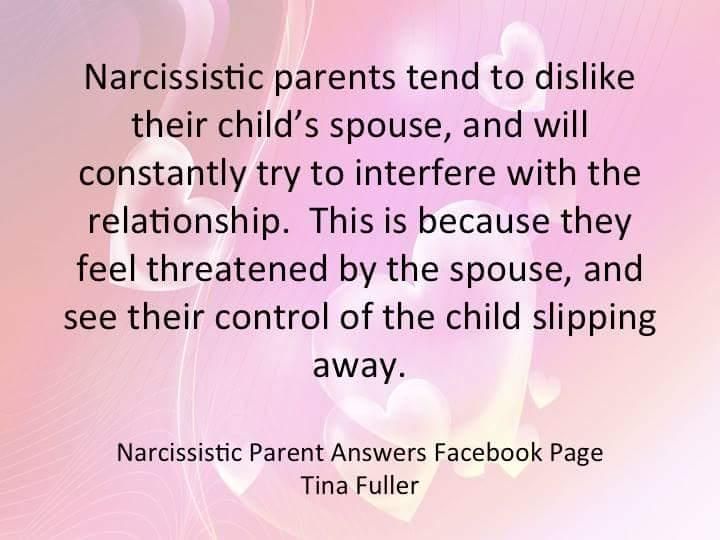 When the parent feels bad about themselves or the child did or did not do something expected of them, the parent may ignore them, be cruel to them, or even become abusive.3,4,5
When the parent feels bad about themselves or the child did or did not do something expected of them, the parent may ignore them, be cruel to them, or even become abusive.3,4,5
2. Somehow, It Was Always About Them
People with NPD have a way of always making a situation about them. Their tendency to make things about them may have meant that you felt unheard, unseen, and invisible.4 Even during moments that were supposed to be about you (i.e. your birthday, graduation, etc.), your parent may have found a way to make themselves the center of attention.
Dr. Amy Brunell, Professor of Psychology at Ohio State University states, “Because narcissists operate in an ‘all about me’ fashion, the world revolves around them, their needs and desires. They continue to be selfish and expect others, including their children, to cater to them. So, when their child does well, they take credit and brag about the child, and when the child struggles, they blame the child or others for it.
They are controlling and they readily induce guilt in their children. They tend not to offer much by way of emotional support and validation, and the child quickly learns that the parent’s goals are important whereas their own goals are not. This is frequently because the parent is living their own lives through the child and the child’s accomplishments.”9
Some examples of how narcissistic parents make everything about themselves are:
- Conversations are always being about them instead of you
- They took credit for your achievements
- They created conflict or drama to draw attention to themselves
- They made everything personal, even when it had nothing to do with them
- They always needed to ‘one-up’ you when you achieved something
3. You Didn’t Know What Was Real & What You Imagined
Another sign you were raised by narcissists is experiencing self-doubt. Narcissists are often skilled at gaslighting, which is the abusive tactic of twisting and distorting the truth in ways that can make a person question and doubt reality. 7
7
Over time, this causes children to doubt themselves and their reality, even making them wonder if they are imagining things or going crazy.
Some examples of narcissistic gaslighting include:7
- Telling you that you are imagining or making things up
- Accusing you of exaggerating the truth
- Listing past times when they say you lied, imagined, or made something up
- Twisting what you said or did or what happened
4. You Weren’t Allowed to State Your Feelings or Needs
If you felt like it wasn’t ok for you to tell your parent how you felt or what you wanted or needed growing up, it may be an indication that your parent has NPD. Children of narcissists learn early that the things they feel, want, and need don’t matter to their parent, and learn to keep these to themselves.
Sometimes, children raised by narcissists struggle to even identify how they feel or what they want or need, as they’ve become so used to repressing these inner feelings, wants and needs. This can continue into adulthood, causing them to feel uncertain about who they are, what they like and don’t like, or to have a hard time making their own decisions.3,6
This can continue into adulthood, causing them to feel uncertain about who they are, what they like and don’t like, or to have a hard time making their own decisions.3,6
5. You Witnessed Their Victims
Narcissists don’t have the capacity to have healthy, mutual relationships where they attend to the feelings and needs of other people. This is why most narcissists have a pattern of unhealthy or broken relationships. Severe narcissists often have a long list of people who they used and then discarded when they were done with them.2
Even if your parent was able to maintain their relationships with other people, you probably witnessed times when they:
- Talked poorly about other people
- Overreacted to the slightest criticism
- Became aggressive or passive-aggressive to others
- Took advantage of or used people for their own needs
- Became jealous or competitive of people who had something they didn’t
- Guilted or manipulated other people to get what they wanted
6.
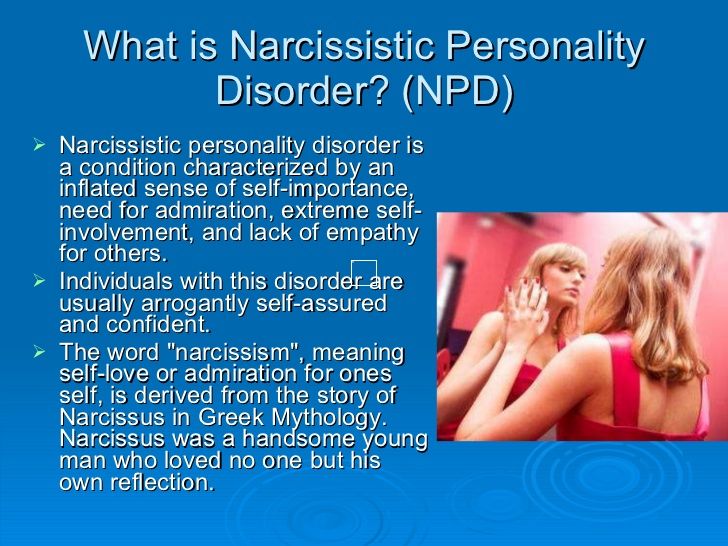 You Worried (a Lot) About Displeasing Them
You Worried (a Lot) About Displeasing ThemIt’s normal for a child to want to please their parent, but if you had a parent with NPD, you might have lived in fear of displeasing your parent. Often, this fear came from seeing what happened to others who upset them and also experiencing it firsthand.
Many children of parents with NPD go to great lengths to please their parents, with limited success. This is because what it takes to please their parent one day might change the next, meaning that children of narcissists often live in a state of constant stress and fear. The punishments you received might have also varied widely depending on what mood your parent was in, leaving you constantly guessing.5
7. Their Reputation Was Your Responsibility
Because narcissists are so dependent on the validation, recognition, and admiration of others, their children are expected to help them maintain a perfect appearance.3 As Dr. Campbell notes, “the child can become an extension of the narcissistic parents’ ego,” which often includes helping the parent maintain a certain image or reputation.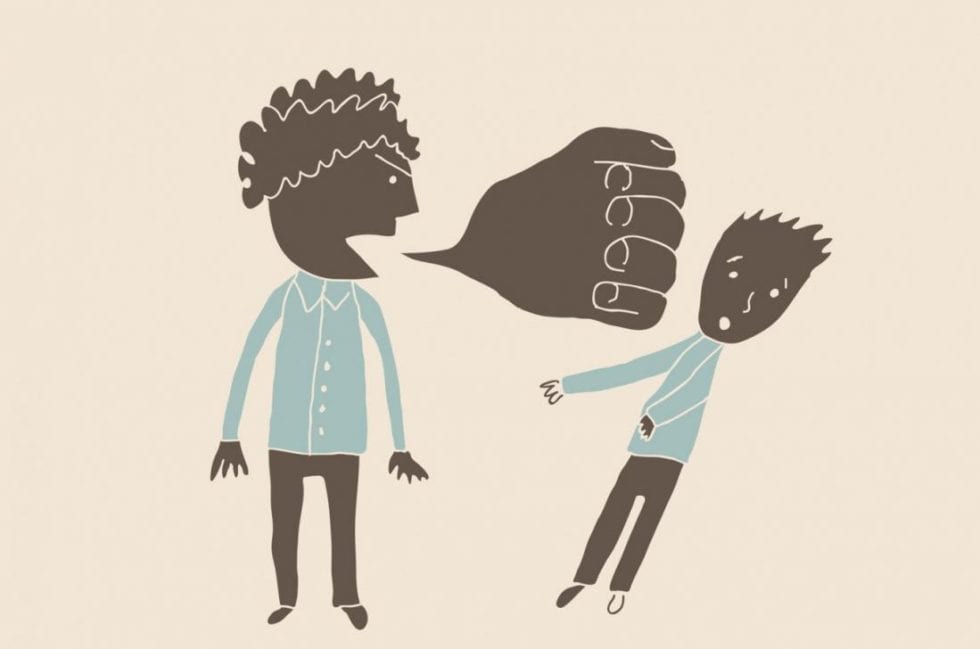
Some of the ways you may have been expected to protect your parent’s image include:
- Being punished severely for embarrassing your parent
- Being bullied about your own appearance, weight, or performance
- Not being allowed to share certain details about them or their life with others
- Being treated like an ‘accessory’ to your parent for photo ops and public image
- Being lectured about how your actions reflect poorly on them
- Your parent wanting you to be successful enough to brag about, but not so successful that it triggered their jealousy or made them feel inferior to you
8. They Expected You to Always Agree With Them
Because narcissists have very fragile egos, having a different opinion, belief, or idea can be seen as a threat. Children of narcissists are often denied the right to have their own feelings, beliefs, or opinions, and also aren’t allowed to make their own choices.4
If your parent hated someone, you may have also been expected to hate that person too, or if they had an opinion, they needed you to second it. In times when you didn’t, you may have paid the price. Your parent may have become cold, cruel, or even abusive towards you for disagreeing with them.
In times when you didn’t, you may have paid the price. Your parent may have become cold, cruel, or even abusive towards you for disagreeing with them.
9. They Were Hot & Cold
Because narcissists rely on other people for their validation, they are often just as skilled at reeling people in as they are at spitting them out. “Love bombing” is one of the common terms used to describe ways someone with NPD draws people close to them, and involves showing a lot of affection, care, and concern for someone to get close to them.
Unfortunately, this often doesn’t last, and usually ends with either an anger outburst, the silent treatment, or another emotionally abusive form of punishment. If you had a parent with NPD, you have probably experienced both the love bombing and the emotional neglect or abuse that followed it. This may have confused you as a child, causing you to feel like if you “just tried harder” they would treat you better.
10. They Did No Wrong
At the core of NPD is a deep sense of shame and inadequacy, and most of the symptoms of the disorder function to protect the person from it. This includes their defenses of blaming other people, lashing out, denying their mistakes, and needing to maintain a perfect appearance.
This includes their defenses of blaming other people, lashing out, denying their mistakes, and needing to maintain a perfect appearance.
Unfortunately, this means that most parents with NPD will not admit that they did anything wrong, including not being willing to acknowledge some of their shortcomings as parents. If you had a narcissistic parent, you may have been blamed for many things that weren’t really your fault. If you ever tried to confront your parent about ways they mistreated you, you probably did not get the apology you wanted from them.
Help For Narcissistic Abuse
Individual Therapy – Get personalized help with recovering from narcissistic abuse from a licensed therapist. BetterHelp offers online sessions by video or text. Try BetterHelp
Support Groups – You are not alone in dealing with a narcissist. Sesh offers over 100 different support groups per month, with at least once a week focused on narcissism. First Month Free
First Month Free
Books On Narcissism – See our handpicked selection of Narcissism Books List
Choosing Therapy partners with leading mental health companies and is compensated for referrals by BetterHelp and Sesh.
Effects of Being Raised by Narcissists
The effects of being raised by a narcissistic parent can vary, depending on how severe the NPD was, how much time you spent with that parent, and what other supports you had in your life. The more severe your parent’s NPD was, the more time you spent with them, and the fewer supports you had, the more likely you are to experience lasting negative effects. In many instances, children suffered abuse from their NPD parent, and may have even developed symptoms of post-traumatic stress disorder.
Brunell says, “The child typically suffers from low psychological well-being, such as low self-esteem, depression, and anxiety. They tend to try to please others and have poor ability to set boundaries or to say no to people’s requests.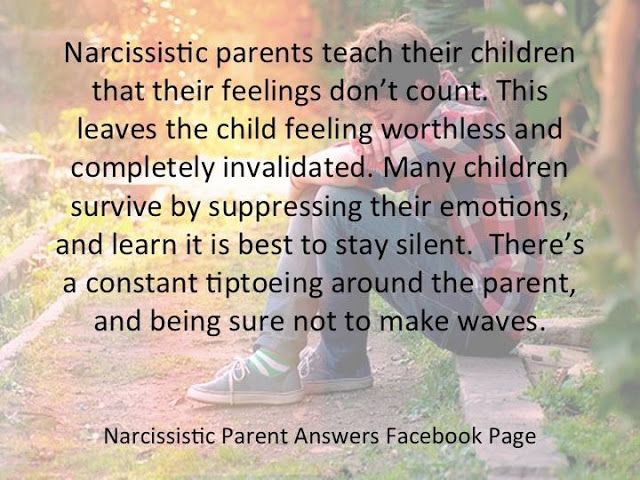 This is because they have learned through their childhood that they are not as important as other people are.”
This is because they have learned through their childhood that they are not as important as other people are.”
The experiences of growing up in a home with a parent who had NPD can result in some of the following issues:3,4,5,6
- Low self-esteem, shame, or insecurities: NPD parents may shame or ridicule their children, leading them to be insecure in adulthood
- Trust issues in relationships and trouble being vulnerable: Secrets, insecurities, and emotions are weaponized by NPD parents and can lead to trust issues
- High levels of self doubt and not trusting yourself to make decisions: Gaslighting, manipulation, and rage outbursts cause people to doubt themselves
- Needing the approval or validation of other people: Children learn from their parents behaviors, including narcissists in need of constant supply, so you might find yourself being an approval addict
- Codependent or caretaking patterns in relationships: The feelings, needs, and wants of NPD parents become their child’s responsibility
- Perfectionist tendencies, or alternatively, self-destructive tendencies: NPD parents have impossible standards that their kids internalize or rebel against, which may lead to perfectionism or impulsivity later in life
- Trouble standing up for yourself, setting boundaries, or saying no: Children of NPD parents are often punished or shamed for asserting themselves
- Difficulty identifying or expressing your feelings, wants, or needs: Children of NPD parents learn to repress their feelings, wants or needs
- Trouble separating from parents or being independent from them: NPD parents often work hard to keep their children dependent on them
- Not feeling like you developed a strong identity or sense of who you are: Normal identity development doesn’t occur in abusive homes
- Unhealthy or toxic adult relationships: families of origin become the model for adult relationships, attachment issues develop when there is childhood trauma
- Symptoms of anxiety, depression, PTSD, or another mental health or substance use disorder: There are negative long-term effects that result from abuse, neglect, and unhealthy home environments
When & How a Therapist Can Help
In order to heal from narcissistic abuse, it’s important to seek help from a professional counselor.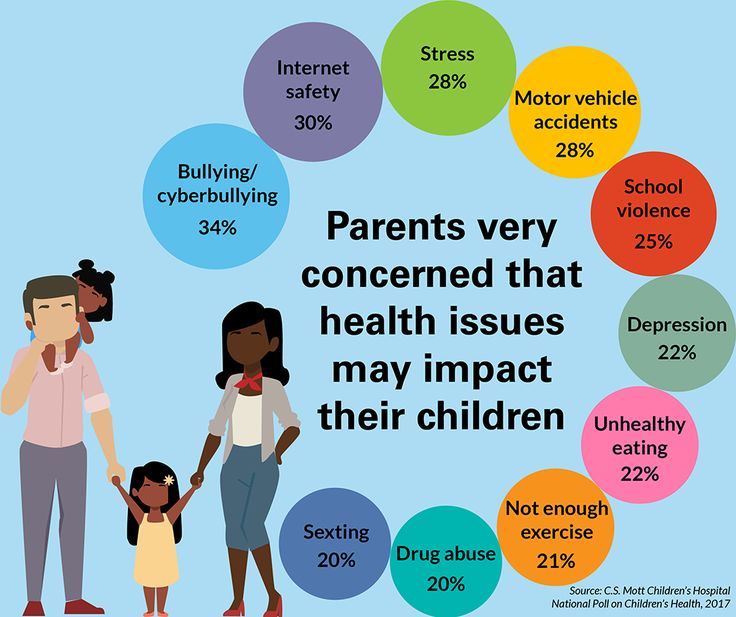 According to Dr. Cambell, “Therapy will help the patient understand what they were seeing and experiencing as a child with an adult level of understanding. Ideally, things that seem confusing will start to make sense.”
According to Dr. Cambell, “Therapy will help the patient understand what they were seeing and experiencing as a child with an adult level of understanding. Ideally, things that seem confusing will start to make sense.”
Individual therapy may be helpful for those just beginning the healing process, but group therapy can also be helpful in connecting people to others who have had similar experiences. If your parent has taken accountability for their actions and is willing to work on their relationship with you, family therapy could also be an option.
Some of the ways a trained therapist can help someone recovering from narcissistic abuse syndrome include:
- Learning more about NPD and the common experiences of those who’ve been the victim of narcissistic abuse
- Identifying old coping mechanisms that may be getting the way of healthy relationships now, and better ways of coping
- Learning how to tell the difference between healthy and unhealthy relationships
- Learning to communicate assertively, set boundaries, and avoid repeating toxic patterns you witnessed and experienced as a child
- Getting in touch with your feelings, wants, and needs and learning to make decisions independently and doubt yourself less
- Resolving shame, attachment wounds, and insecurities that resulted from unhealthy or abusive relationships with your parent
- Identifying ways to set boundaries with your parent to reduce the negative impact they have on you and your life as an adult
When you are in the process of finding a therapist, it’s a good idea to look for someone who has experience in treating trauma, and who is knowledgeable about NPD.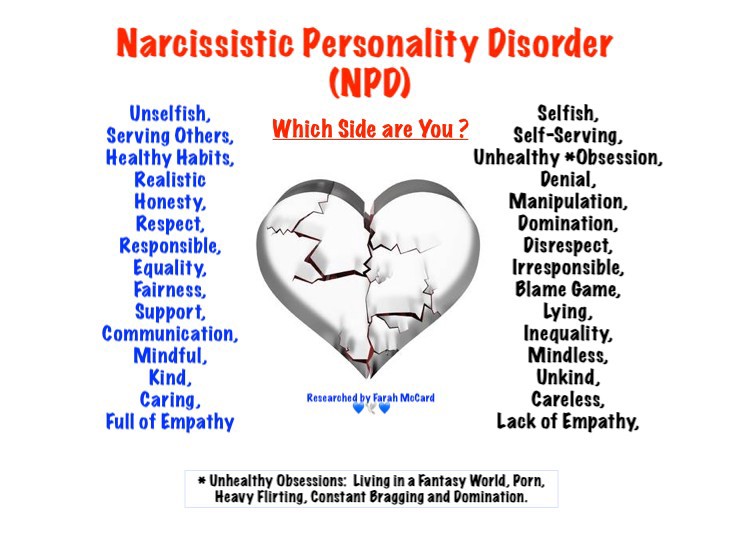 Using an online therapist directory can help you narrow your search and find a therapist who has certain specialties, including helping you find someone who is in-network with your insurance. With therapy, it is often possible to heal from narcissistic abuse and learn ways to move forward with your life.
Using an online therapist directory can help you narrow your search and find a therapist who has certain specialties, including helping you find someone who is in-network with your insurance. With therapy, it is often possible to heal from narcissistic abuse and learn ways to move forward with your life.
Final Thoughts on Being Raised by a Narcissist
Being raised by someone who has NPD often means that as a child, you didn’t get the love, support, and guidance you needed from your parent or caregiver. Many parents with NPD are neglectful or abusive to their children, which can result in lasting negative impacts that continue into adulthood. With treatment, it is often possible to heal from narcissistic abuse and learn ways to improve your mental health and form healthy and fulfilling relationships as an adult.
Additional Resources
Education is just the first step on our path to improved mental health and emotional wellness. To help our readers take the next step in their journey, Choosing Therapy has partnered with leaders in mental health and wellness. Choosing Therapy may be compensated for referrals by the companies mentioned below.
To help our readers take the next step in their journey, Choosing Therapy has partnered with leaders in mental health and wellness. Choosing Therapy may be compensated for referrals by the companies mentioned below.
BetterHelp (Online Therapy) – BetterHelp has over 20,000 licensed therapists who provide convenient and affordable online therapy. BetterHelp starts at $60 per week. Complete a brief questionnaire and get matched with the right therapist for you. Get Started
Online-Therapy.com – The Online-Therapy.com standard plan includes a weekly 45 minute video session, unlimited text messaging between sessions, and self-guided activities like journaling. Recently, they added Yoga videos. Get Started
Mindfulness.com (App) – Mindfulness and meditation can change your life. In a few minutes a day with Mindfulness.com, you can start developing mindfulness and meditation skills. Free Trial
Choosing Therapy’s Directory – Find an experienced therapist who is committed to your wellbeing.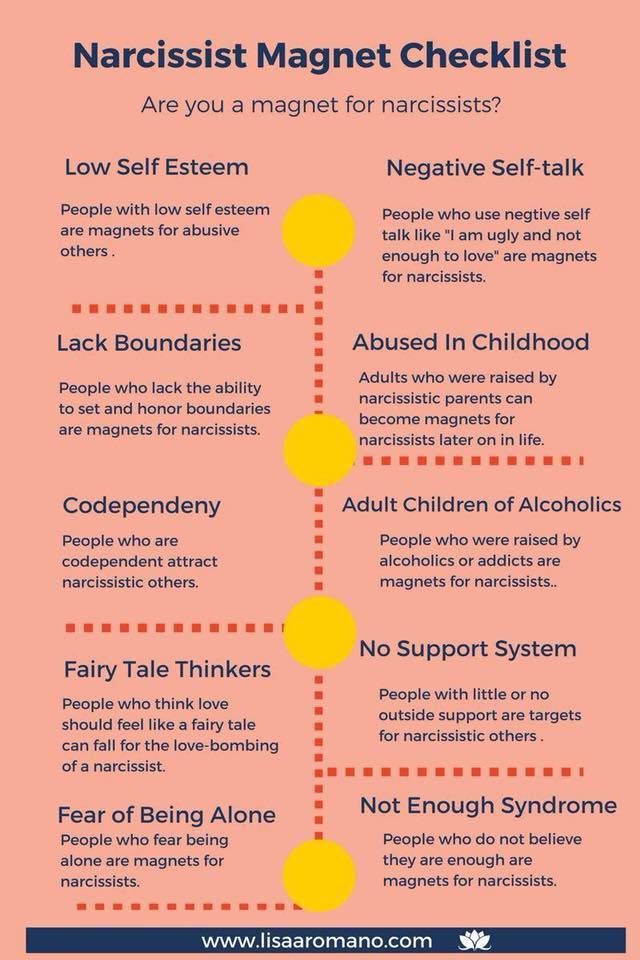 You can search for a therapist by specialty, availability, insurance, and affordability. Therapist profiles and introductory videos provide insight into the therapist’s personality so you find the right fit. Find a therapist today.
You can search for a therapist by specialty, availability, insurance, and affordability. Therapist profiles and introductory videos provide insight into the therapist’s personality so you find the right fit. Find a therapist today.
Choosing Therapy partners with leading mental health companies and is compensated for referrals by Circles, BetterHelp, Online-Therapy.com, and Mindfulness.com
For Further Reading
- Mental Health America
- National Alliance on Mental Health
- MentalHealth.gov
9 sources
Choosing Therapy strives to provide our readers with mental health content that is accurate and actionable. We have high standards for what can be cited within our articles. Acceptable sources include government agencies, universities and colleges, scholarly journals, industry and professional associations, and other high-integrity sources of mental health journalism. Learn more by reviewing our full editorial policy.
-
American Psychiatric Association.
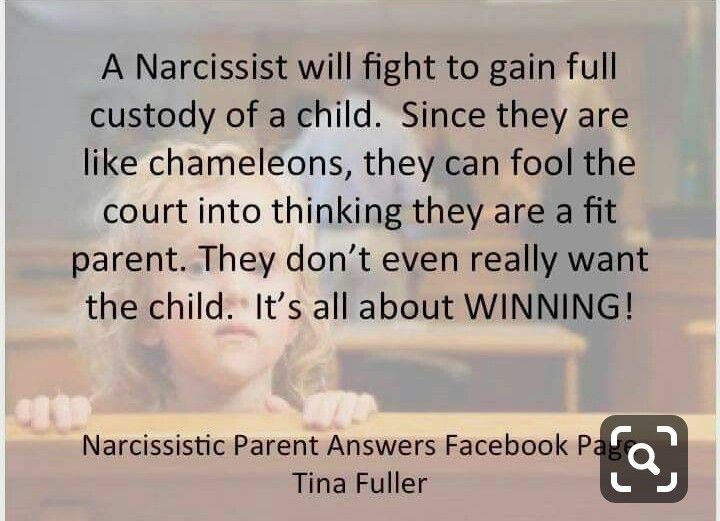 (2013).Diagnostic and statistical manual of mental disorders (5th ed.). https://doi.org/10.1176/appi.books.9780890425596
(2013).Diagnostic and statistical manual of mental disorders (5th ed.). https://doi.org/10.1176/appi.books.9780890425596 -
Caligor, E., Levy, K. N., & Yeomans, F. E. (2015). Narcissistic personality disorder: Diagnostic and clinical challenges. American Journal of Psychiatry, 172(5), 415-422.
-
Drevitch, G. (February 19, 2018). The Real Effects of Narcissistic Parenting on Children. Retrieved from https://www.psychologytoday.com/us/blog/the-legacy-distorted-love/201802/the-real-effect-narcissistic-parenting-children.
-
McBride, K. (2008). Will I ever be good enough?: Healing the daughters of narcissistic mothers. Simon and Schuster.
-
Duffy, J. L., & Jacquin, K. M. (2017). The Psychological and Legal Risks for Children of Narcissistic Parents. Fielding Graduate Institute.
-
Shaw, D. (2010). Enter ghosts: The loss of intersubjectivity in clinical work with adult children of pathological narcissists.
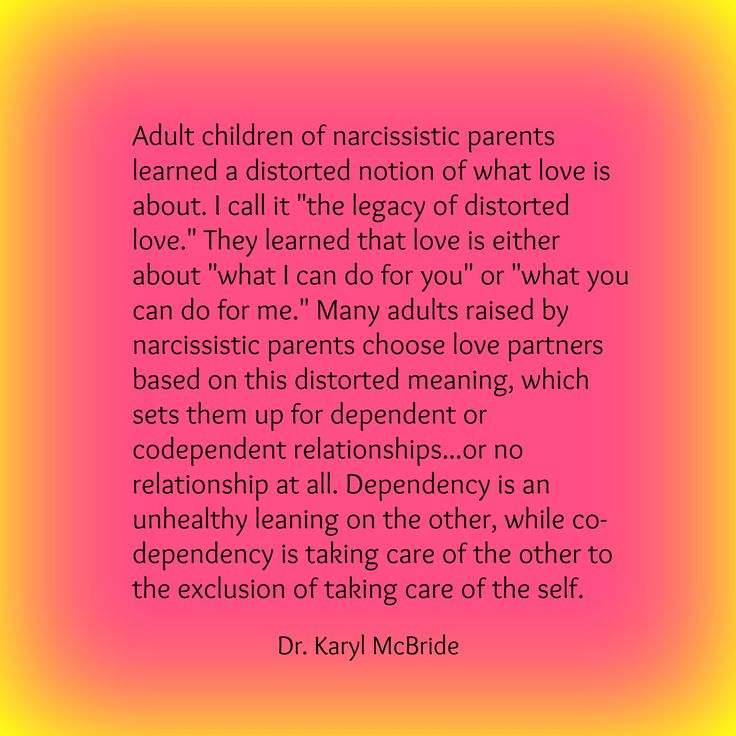 Psychoanalytic Dialogues, 20, 46-59.
Psychoanalytic Dialogues, 20, 46-59. -
Greenberg E. Are You Being Gaslighted By the Narcissist in Your Life? Psychology Today. Sussex Publisher (September 17, 2017). Retrieved from https://www.psychologytoday.com/us/blog/understanding-narcissism/201709/are-you-being-gaslighted-the-narcissist-in-your-life
-
Campbell, W. Keith. (2021). Personal Interview.
-
Brunell, Amy. (2021). Personal Interview.
If you are in need of immediate medical help:
Medical
Emergency
911
Suicide Hotline
800-273-8255
11 Effects of Narcissistic Parents and How To Deal With Them
| 9 Narcissistic Parents Traits | 11 Effects of Narcissistic Parents | How to Deal With a Narcissistic Parent |
What is a narcissistic parent
A narcissistic parent is a self-centered and self-absorbed parent who has an inflated self-image and thinks that they are better than others.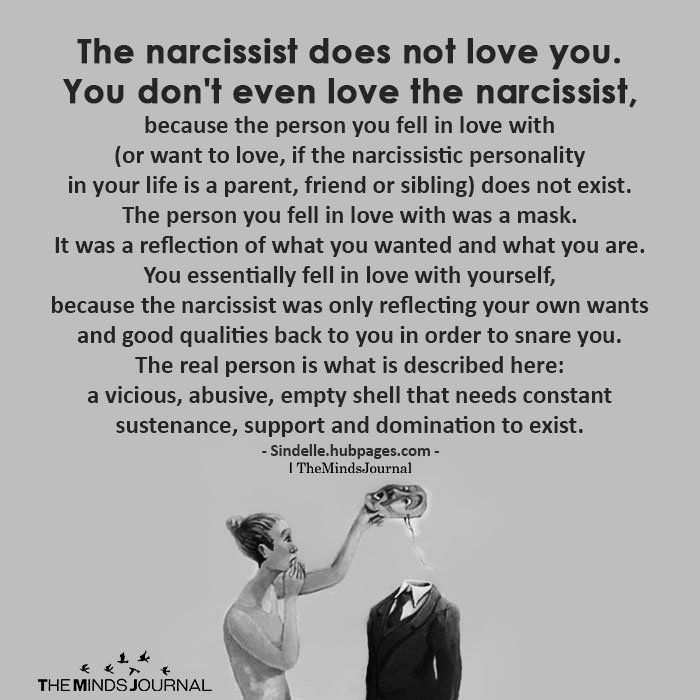 They often disregard other people’s needs and concerns, including their children’s, because they believe their needs and feelings are the most important. In severe cases, they suffer from Narcissistic Personality Disorder (NPD).
They often disregard other people’s needs and concerns, including their children’s, because they believe their needs and feelings are the most important. In severe cases, they suffer from Narcissistic Personality Disorder (NPD).
9 Narcissistic Parent traits
Narcissists tend to have the following types of behaviors 1:
Grandiosity
Grandiosity is the core characteristic of narcissism. A narcissist parent has an inflated sense of their own importance and fantasizes about unlimited power, superiority, uniqueness, and perfection. They believe their opinions and ideas are better than anyone else’s and the only ones that matter2.
Entitlement
It is common for narcissistic parents to be overly preoccupied with their own emotional needs, believing that they should always come first, and expecting others to meet their needs instantly without question3. Everyone else is just there to satisfy their needs and be under their control.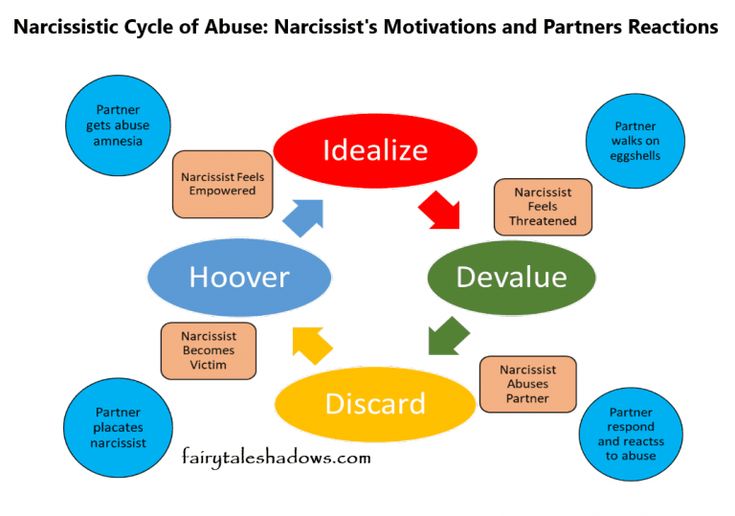 They expect preferential treatment and believe their needs should take precedence over those of their children.
They expect preferential treatment and believe their needs should take precedence over those of their children.
Furthermore, they are controlling parents who see themselves as entitled to manipulate their kids or take unfair advantage of them in order to get what they want. To control their children, they often use shaming, guilt-tripping, and yelling.
Lack of empathy
Narcissists are cold, critical, demanding, and unresponsive to the needs of others. They are indifferent to the negative impacts of their narcissistic behavior and demeaning remarks on others but expect others to empathize with them4.
Arrogant
They think they are superior to others and talk down to them. They make sure others know that and refer to their superiority frequently. Narcissists believe they are never wrong and blame others all the time for their mistakes5.
Contemptuous
Often, people who feel superior think others are less deserving6.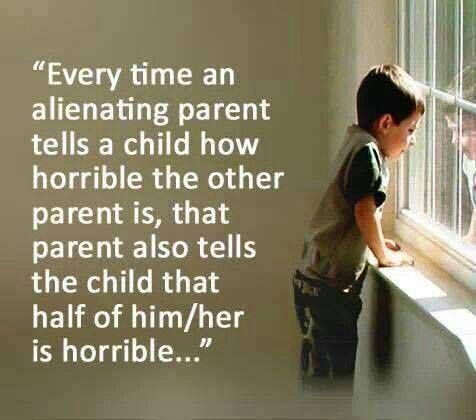 They make frequent condescending remarks about others and criticize their choices or actions. This includes their own children. Narcissistic parents constantly put down their children and nothing they do is good enough for them.
They make frequent condescending remarks about others and criticize their choices or actions. This includes their own children. Narcissistic parents constantly put down their children and nothing they do is good enough for them.
Intense envy
They are often jealous and envious of others and believe that everyone else is envious of them. In order to prove their superiority over others, they tend to surround themselves with people who achieve less and will agree with them 7.
Self-esteem dysregulation
They are emotionally immature parents. A threat to their positive self-image causes them to become emotionally dysregulated and react to criticism with extreme rage8. Whenever they don’t get what they want, they can explode into anger, shaming, guilting, and accusing everyone.
Attention seeking
In order to be the center of attention, they are always roasting or bragging about their accomplishments9. They crave signals of superiority and compliments so much that even insincere flattery is not recognized.
When narcissistic father or mother shows attention-seeking behavior, they portray themselves as loving, caring parents who have sacrificed a lot for their children.
Intolerant to child’s differences in values, opinions, and needs
Not allowing differences in ideas is one of the most common themes of covert narcissistic parents because their children are seen as extensions of themselves10. Disagreements are viewed as personal attacks that infuriate them. The parent will belittle and dismiss anything that does not match their point of view.
11 effects of narcissistic parents
Children of narcissists are negatively affected in many ways. The formative years play a vital role in a child’s social, psychological, and emotional development. Adverse childhood experiences (ACE) can have detrimental long-term effects.
Here are some of the traits of children of narcissistic parents.
1. Low self-esteem
After being told toxic things like “you are worthless” your whole life, a child under influence of narcissistic parenting can feel incompetent and have low self-esteem11.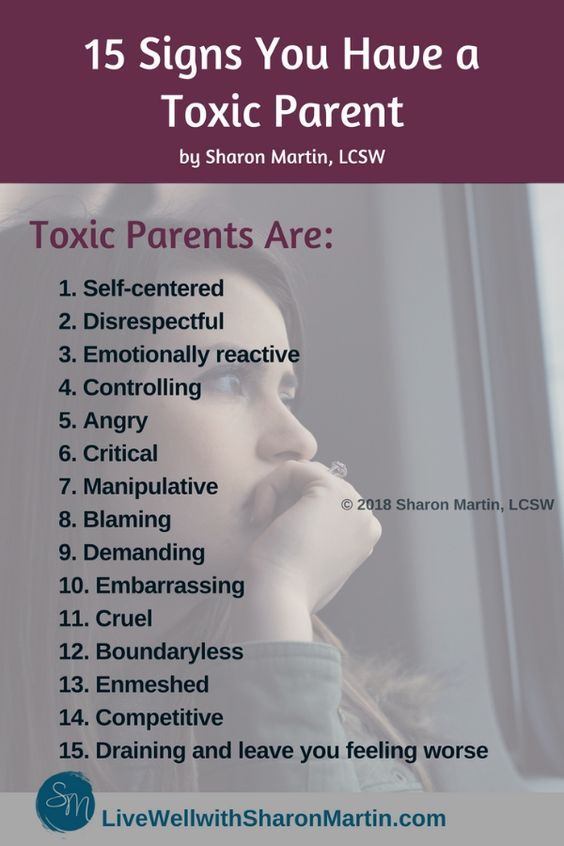 While you may not be consciously aware of these difficult feelings, they can run in the background and have a profound effect on your everyday life.
While you may not be consciously aware of these difficult feelings, they can run in the background and have a profound effect on your everyday life.
2. Crave approval and validation from others
Narcissistic parents use the child to fulfill their unsatisfied needs for admiration, praise, recognition, and achievement, driving the child to constantly search for approval from them. Even as an adult, an inner critic keeps telling you that you’re not good enough because your parents had set impossible standards for you. You may become dependent on others for validation and reassurance.
3. Chronic shame
You may be suffering from chronic shame. Narcissists project their toxic shame onto others, particularly their children. Children are often ridiculed or humiliated for having their own opinions or feelings. The effects of shame can be debilitating and cause issues in adulthood.
4. People pleaser
The adult child remains trapped in the roles they assumed as a child of a narcissistic parent and does not possess a strong sense of self. These individuals are extremely self-sacrificing in their romantic relationships. They are people-pleasers who don’t have their own opinions, desires, or dreams because they were muted as children to please their parents. You may strive to please others, even if it hurts you in some way.
5. Struggle with expressing or regulating emotions
You have learned not to express your needs and emotions because you repressed them throughout childhood. Additionally, you never learned how to control your negative emotions. Now, you find it difficult to regulate negative feelings, such as anger or sadness.
6. Difficulty forming healthy relationships
Most likely, you have attachment issues with your parents growing up. An insecure attachment affects how you view yourself and others, and your ability to form a healthy adult relationship. You may find it difficult to maintain a close relationship. You are also more prone to having unhealthy patterns of relationships including domestic violence.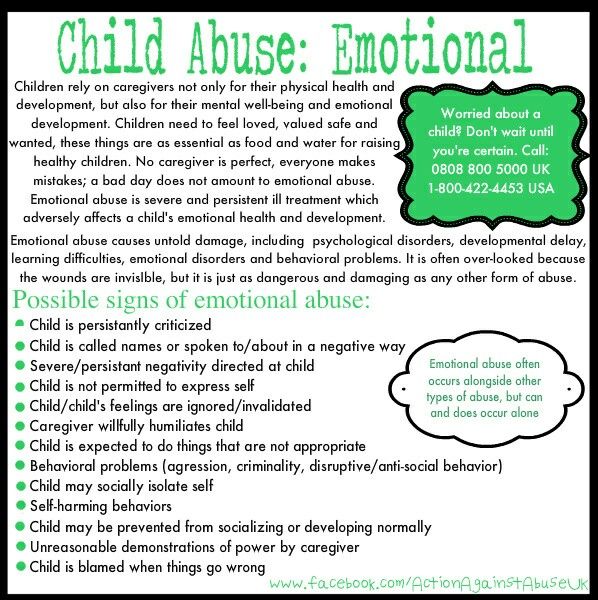
7. Lack of boundaries
You were taught as a child to follow instructions and never speak your mind. No opportunity was given to assert your independence or rights. Now you have no idea how to assert yourself, maintain boundaries, or stand up for yourself.
8. Indecisive
As a child, you were always forced to follow your parents’ orders and were not allowed to have an opinion of your own. As a result, even when given the chance in adulthood, you may have a hard time making your own decisions.
9. Self-defeating thoughts
Your emotions and behavior may still be affected by your parent’s negative messages. Self-defeating thoughts can cripple your ability to function as an adult.
10. Health issues
Physical health or mental health conditions could be affecting you. Continuous stress caused by abusive behavior over time can result in physical illness. A wide range of mental disorders may also be present, such as anxiety, depression, alcoholism, drug abuse, etc.
11. Wonder why others treasure their families so much
A narcissistic family is more of a source of pain for you than a place of safety. You may find it inconceivable that others seem to cherish their families so deeply and find happiness in life.
Also See: Toxic Mother and How To Deal With Her
How to heal from narcissistic parents
It has been a difficult journey, and now’s the time to take the first step to heal from this childhood trauma.
Recognize narcissism
An important step in healing is to recognize that you are not responsible for the emotional abuse you suffered as a child. No matter how much your parents try to manipulate and claim otherwise, abused children are not at fault.
Set healthy boundaries with narcissistic parents
Adult children of narcissistic parents must learn to establish healthy boundaries and respectful connections. It may be necessary or even a good thing for you to end the abusive relationship with your toxic parents for your own mental well-being.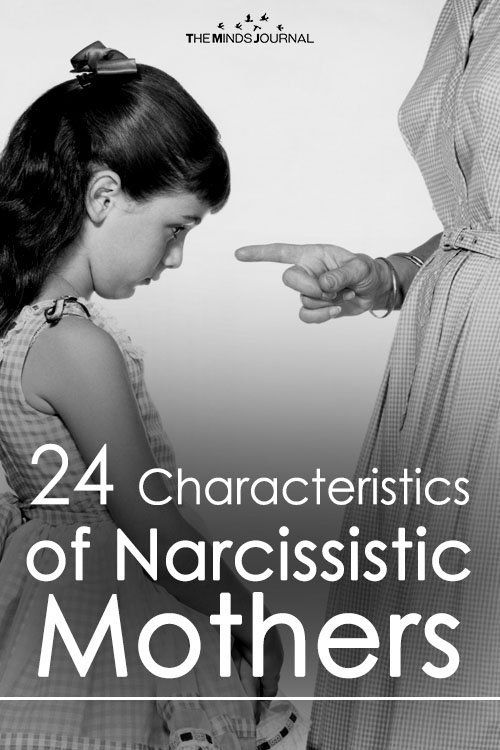 You do not have to endure unpleasant parent-child interactions.
You do not have to endure unpleasant parent-child interactions.
Build your support network
Those who haven’t experienced this usually don’t understand what it’s like to be raised by narcissists. Your friends may try to help, but end up saying things that hurt you even more. So the best way to find social support is to look for local support groups and people who have had common experiences. Create a support network that can help you adopt self-supporting/coping behavior and get through tough times.
Exercise and meditation
Meditation and exercise can help lift your mood12 and strengthen your immune system13, which has been weakened by high levels of stress through the years.
Do not try to change them
Narcissists cannot see themselves as they are. In their entire lives, they believe they are right and everyone who disagrees with them is wrong. Trying to change them will likely cause you more pain.
Do not try to get an apology
You won’t get one.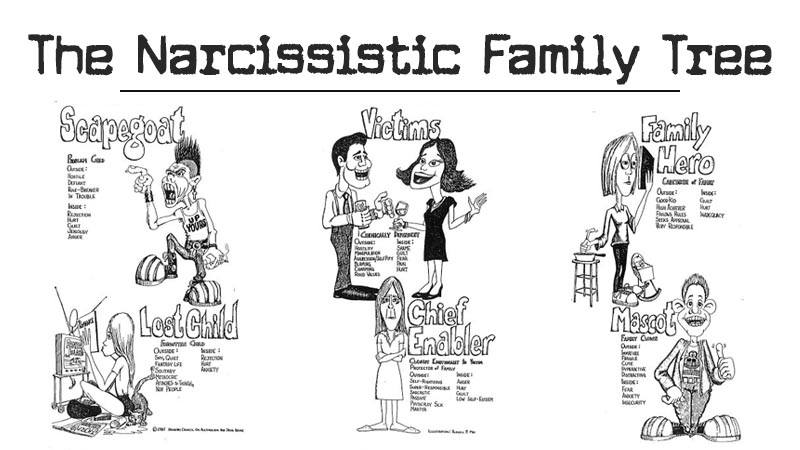 Period.
Period.
Get professional help
A lifetime of abuse can be a difficult thing to deal with on your own. The good news is there is help for you. Look for an experienced therapist for support. They can help you develop your own identity, a healthy sense of self, and good self-esteem that your actual parents didn’t provide.
References
-
1.
Määttä M, Määttä K, Uusiautti S, Äärelä T. “SHE DOES NOT CONTROL ME ANYMORE BUT I CAN HEAR HER VOICE SOMETIMES” – A PHENOMENOGRAPHIC RESEARCH ON THE RESILIENCE PERCEPTIONS OF CHILDREN WHO HAVE SURVIVED FROM UPBRINGING BY A NARCISSISTIC PARENT. Zenodo. Published online February 11, 2020. doi:10.5281/ZENODO.3662420
-
2.
Overview: narcissistic personality disorder. AJP. Published online January 1982:12-20. doi:10.1176/ajp.139.1.12
-
3.
Ackerman RA, Donnellan MB. Evaluating Self-Report Measures of Narcissistic Entitlement.
 J Psychopathol Behav Assess. Published online March 27, 2013:460-474. doi:10.1007/s10862-013-9352-7
J Psychopathol Behav Assess. Published online March 27, 2013:460-474. doi:10.1007/s10862-013-9352-7 -
4.
Baskin-Sommers A, Krusemark E, Ronningstam E. Empathy in narcissistic personality disorder: From clinical and empirical perspectives. Personality Disorders: Theory, Research, and Treatment. Published online 2014:323-333. doi:10.1037/per0000061
-
5.
Carlson EN. Honestly Arrogant or Simply Misunderstood? Narcissists’ Awareness of their Narcissism. Self and Identity. Published online May 2013:259-277. doi:10.1080/15298868.2012.659427
-
6.
Ronningstam E. Narcissistic Personality Disorder. Journal of Psychiatric Practice. Published online March 2011:89-99. doi:10.1097/01.pra.0000396060.67150.40
-
7.
Pincus AL, Lukowitsky MR. Pathological Narcissism and Narcissistic Personality Disorder. Annu Rev Clin Psychol. Published online March 1, 2010:421-446. doi:10.1146/annurev.
 clinpsy.121208.131215
clinpsy.121208.131215 -
8.
Ronningstam E. Narcissistic Personality Disorder: A Current Review. Curr Psychiatry Rep. Published online January 8, 2010:68-75. doi:10.1007/s11920-009-0084-z
-
9.
Skodol AE, Bender DS, Morey LC. Narcissistic personality disorder in DSM-5. Personality Disorders: Theory, Research, and Treatment. Published online October 2014:422-427. doi:10.1037/per0000023
-
10.
Atlas GD, Them MA. Narcissism and Sensitivity to Criticism: A Preliminary Investigation. Curr Psychol. Published online February 16, 2008:62-76. doi:10.1007/s12144-008-9023-0
-
11.
Munich RL, Munich MA. Overparenting and the Narcissistic Pursuit of Attachment. Psychiatr Ann. Published online April 2009. doi:10.3928/00485713-20090401-04
-
12.
Mikkelsen K, Stojanovska L, Polenakovic M, Bosevski M, Apostolopoulos V. Exercise and mental health. Maturitas. Published online December 2017:48-56.
 doi:10.1016/j.maturitas.2017.09.003
doi:10.1016/j.maturitas.2017.09.003 -
13.
Pedersen BK, Hoffman-Goetz L. Exercise and the Immune System: Regulation, Integration, and Adaptation. Physiological Reviews. Published online July 1, 2000:1055-1081. doi:10.1152/physrev.2000.80.3.1055
What kind of injuries do narcissistic parents inflict on us? In communication, they give the impression of charming and gifted personalities. Their self-control is better developed than those suffering from borderline personality disorder or regressive features.
In the clinic, I often work with such people or patients raised by narcissistic parents. They have some noticeable features:
-
In communication with others, they often mention themselves or talk about themselves.
-
They have an increased need for love and admiration.
-
They need to be constantly reminded how special they are.
The narcissist is torn apart by internal contradictions between a sense of his own importance and value and the opposite sense of his own insignificance, which he tries to fight, getting the attention and admiration of others.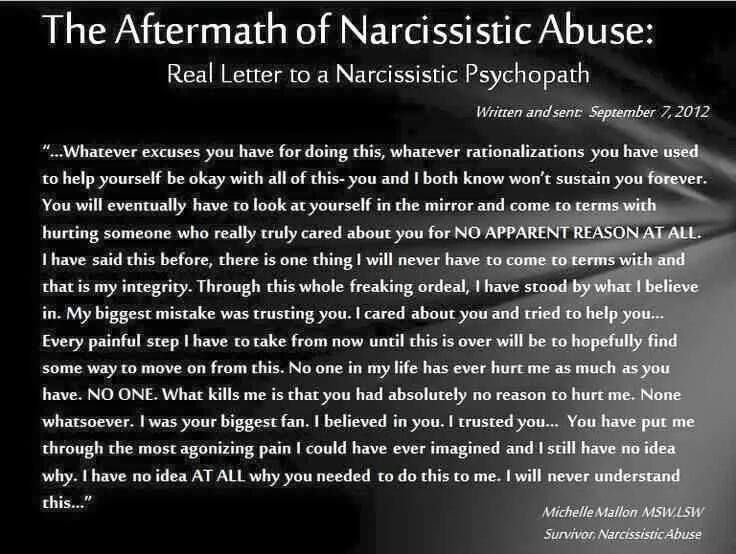 Because of this, communication is difficult and discouraging. At first you feel that they are in dire need of special attention and care, and soon they no longer need it, and criticism will be the answer to attention.
Because of this, communication is difficult and discouraging. At first you feel that they are in dire need of special attention and care, and soon they no longer need it, and criticism will be the answer to attention.
Abrupt changes within the same conversation, as well as other personal characteristics of narcissists, create such problems in communicating with them.
If you had such parents, you probably had problems with spontaneity, creativity and play. Imagination and spontaneity were stifled by constant tension - you couldn't afford to relax even for a second. They did not understand what was happening, due to the unpredictable and contradictory behavior of the parents. In severe cases, you may have experienced psychological trauma.
One of my patients said: “I was afraid to go home. When my father was at home, it was very difficult. His mood could change unpredictably in the blink of an eye. One day I come home, and he just brought everyone a few pieces of cake.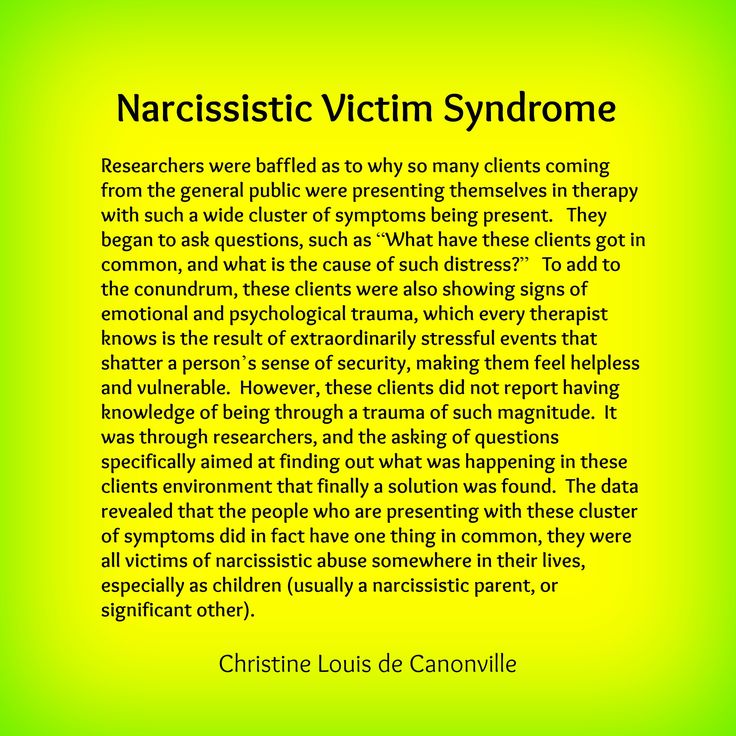 I was very happy and told him about it. But before I finished the first bite, his mood changed dramatically. He decided that I didn't really like the cake and would have preferred something else.
I was very happy and told him about it. But before I finished the first bite, his mood changed dramatically. He decided that I didn't really like the cake and would have preferred something else.
He said that he noticed something in my facial expression that he did not like, and began to literally interrogate me, and eventually accused me of ingratitude. Everything could end very unpleasantly. I lost heart, realizing that I could not change anything. I still had a piece of cake in my mouth, and he began to get angry and accuse me of ingratitude.
I burst into tears before finishing my meal, and as a result I got my face dirty, which pissed him off even more. All this was terrible, but quite typical and expected. When the father was very angry, he could turn to physical violence. Coming back from school, I thought with horror what would happen this time if he was at home.
Unpredictability in parental behavior can be traumatic for a child, especially when it comes to physical assault
If you grew up in such conditions, it will most likely be very difficult for you to reveal your creative potential and your talents.
Other long-term effects are possible. Children of parents with this trait often find partners with similar personality problems. As children, they learned that their role is to soothe and comfort the narcissist, and so they look for such a partner.
Everything repeats as they unwittingly return to unhealthy situations from childhood. I've met adults who have had several relationships or even marriages in which the same narcissistic pattern was repeated. Psychotherapy can help you break out of this vicious circle, rethink problems and experiences that are sucking you back into the familiar relationship pattern. Therapy will show the way, but it will take a lot of time and work to go through it.
About the author: Toby Ingham - psychoanalyst
Text: Nikolay Protsenko Photo credit: Shutterstock
New on the site
Coaching and psychotherapy: 5 main differences
Quiz: What takes away your energy?
“Men use me all the time – for sex, work or heart to heart talk”
The art of gracefully avoiding uncomfortable questions: how to master it
Correct eye movements, the influence of the brain on activity and the treatment of depression: 5 recent discoveries in sports psychology
False myopia: what it is and how it is treated
"Time to get a dog!": what you need to know before getting a pet - weigh the pros and cons
"I had clinical depression and I'm afraid to experience it again"
daffodils - the consequences of improper upbringing for a child
What happens to the personality of a child who is forced to live in the shadow of a narcissistic parent? In this article, psychologist Nastasya Muravyova will talk about the consequences of raising children by narcissistic adults.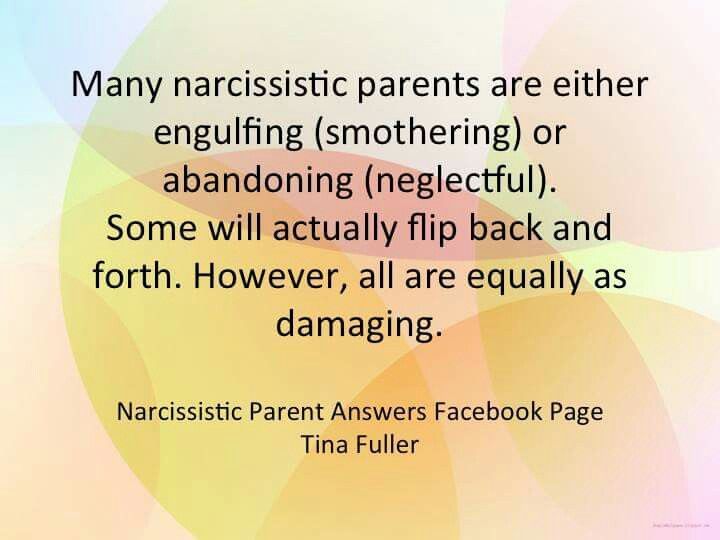
Self-blaming
Narcissistic parents are not always overtly cruel to their children, but they are almost certainly emotionally deaf and too preoccupied with their own problems to hear the pain of others.
Since children cannot go out the door and start a new family, they are ready to sacrifice self-esteem in order to achieve love. “The problem is me,” they say to themselves. “If I was more humble, calmer, or looked happier, my mom wouldn’t yell, ignore, or criticize me all the time. I need to improve in order to be loved.”
"Echoism"
Sensitive and empathic children tend to respond to a narcissistic parent with an attitude that has been called "echoism".
The phenomenon is named after the nymph Echo, who was punished by the gods by being rendered speechless. She could only repeat the words she heard. Narcissus fell in love with his reflection, and the nymph Echo fell in love with Narcissus.
Narcissistic parents who react with sudden outbursts of anger or throw a tantrum every time the child dares to express their needs, view any desire or expectation as blatant selfishness. Like the unfortunate Echo, such children do not have a voice of their own and subsequently associate life with narcissistic partners.
Like the unfortunate Echo, such children do not have a voice of their own and subsequently associate life with narcissistic partners.
Insecure Attachment
Secureness is measured by the degree of comfort we experience in getting close to people.
Neglect, abuse, or emotional absence from a parent makes us feel unsafe around other people.
Insecure attachment comes in two forms: avoidant, when we manage our fears by not letting anyone close enough (“I will never depend on anyone!”) or anxious, when we chase the love of others and crave complete merging with the object passion (“Why doesn’t he pay attention to me?”).
Whether we become restless or withdrawn depends on a combination of temperament and parental care. The constant neglect of the child leads him to choose an avoidance strategy, and unpredictable outbursts of care usually form an alarming pattern.
Panic attacks
Narcissistic parents make children horrified by their own needs.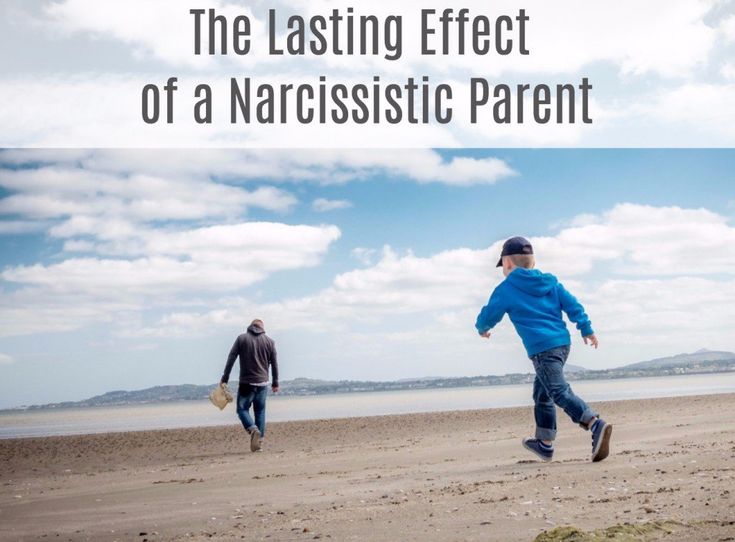 Children learn to forget about themselves, becoming obsessive guardians of loved ones or simply going into the shadows. They may claim that they do not need anything from partners or friends. And then, when a crisis occurs, they seem unsettled and begin to constantly call loved ones and demand reassurances of love.
Children learn to forget about themselves, becoming obsessive guardians of loved ones or simply going into the shadows. They may claim that they do not need anything from partners or friends. And then, when a crisis occurs, they seem unsettled and begin to constantly call loved ones and demand reassurances of love.
Rigid independence
Outgoing, adventurous children respond to narcissistic parenting by forgoing emotional intimacy altogether, believing there is no one they can trust.
Sensitive teenagers turn into obsessive selfless guardians. The only way for them to enjoy attention is to receive it indirectly, providing others with the care that they themselves were deprived of.
Child as parent
Sensitive and empathic children focus on the needs of their parents. They build their lives around the happiness of others, convinced that they must earn respect and love and prevent outbursts of anger by instantly fulfilling other people's whims.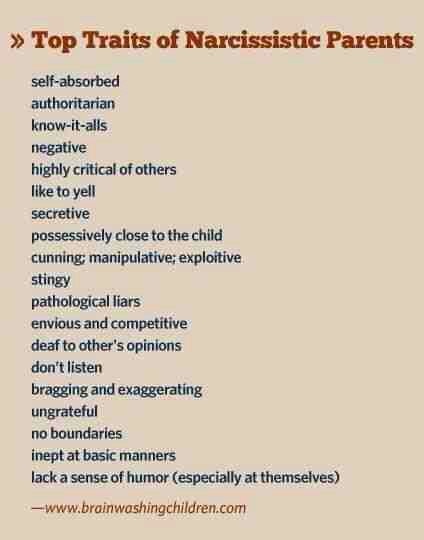
A frightened child turns into a small adult. He may even begin to hate his own needs, seeing them as a heavy burden for others.
Extreme narcissism
A naturally aggressive child is more likely to respond to a narcissistic upbringing by starting the “If you can’t beat them, become one with them” game: “I’m the best, handsome and smart man is here. Now no one will make me feel worthless and unimportant.
If you are born stubborn and pretentious and are treated carelessly or abused, you are more likely to acquire narcissistic traits yourself.
Post-traumatic stress disorder
The more selfish parents are, the more traumatizing they will be for children. Abuse trains us to live in a constant state of alert to avoid danger.
This leads to chronic anxiety, emotional numbness, and even disturbances in the perception of the future. Such people are so fixated on survival that they lose the ability to plan their lives.
